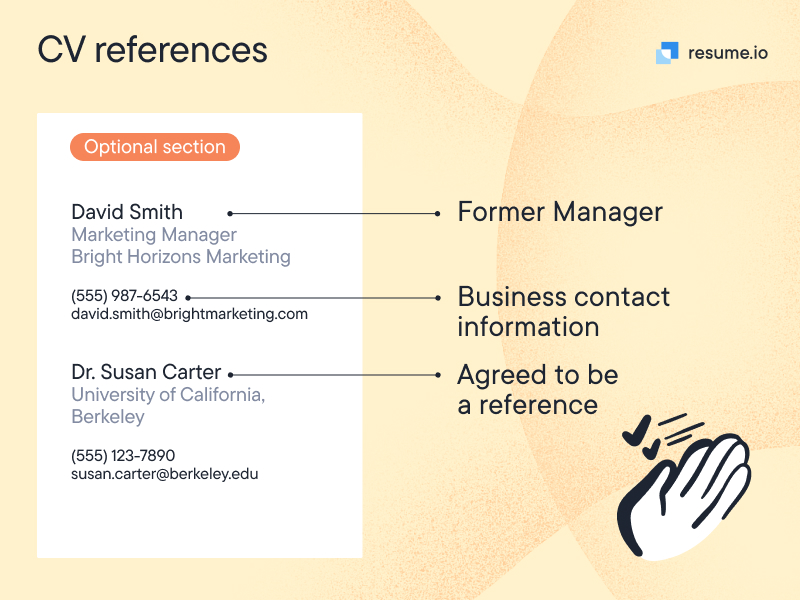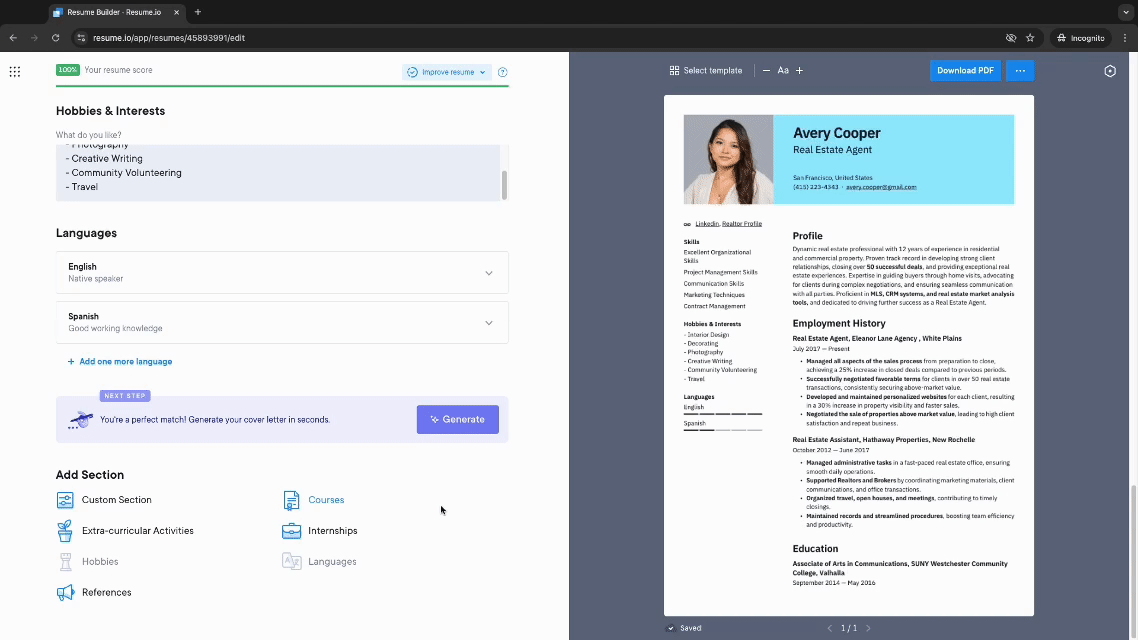Credibility matters when you are embarking on a job search. Hiring managers know that candidates will likely embellish their CVs and interview tales, so there needs to be some balance in the process. That is where references may make a difference. How and when to include references on a CV is a valid question for any job seeker.
Traditionally, a potential boss would ask a previous manager for a reference about the candidate. The referee would then have the opportunity to write whatever they thought about the individual (hopefully only good stuff) and the hiring manager’s decision would be informed by something other than the candidate’s own storytelling.
Over the past decade, however, job search references have become far more sterile. Due to the potential legal implications of a “bad” reference, many HR departments have taken over the process. Many references are now short confirmations of employment, with little true insight into the candidates.
This is not to say that a fantastic referee and reference cannot make a difference to a job search. In this blog we explore the question of how and when to include references on a CV:
- What is a referee on a CV?
- Should you include references on your CV?
- 3 reasons to include references
- 3 reasons to omit references
- How do you include a referee on a CV?
This tool, if deployed correctly, could make all the difference in your job search.
What is a referee on a CV?

A referee for a job application is someone who can provide a personal or professional testimonial about your character, skills, and experience to a potential employer.
Referees can be previous employers, supervisors, colleagues, or even teachers and professors who can vouch for your work ethic and capabilities.
It is important to choose referees who are familiar with your work and can provide positive and detailed insights into your professional life.
Should you include references on your CV?
Including references on a CV is generally considered unnecessary unless specifically requested by the employer. Modern CV practices recommend using the valuable space to detail your skills, experiences, and achievements instead.
Employers typically assume that candidates can provide references upon request, so it is more efficient to write “References available upon request” at the end of your CV, especially if you're using a free CV maker that allows you to customize sections easily.
This approach allows you to keep your CV concise and focused while also being prepared to supply references quickly if they are asked for during later stages of the application process. Moreover, it gives you control over when your references are contacted, allowing you to brief them about the potential inquiry.
3 reasons to include references
It is our experience that references are increasingly omitted from CVs. With the proliferation of social media, hiring managers have plenty of opportunity to conduct their own personal background research on candidates, so formal references are often left until the last minute as a verification step. If you really want to dedicate the precious CV space to a couple of referees, you should have a pretty solid reason.
The hiring manager requests them.
If the job description requests references on a CV (often for the purposes of efficiency), then you should ensure that you comply. It is rare that this is the case, but you should make a little space for two names, their titles and company names. The presence of referees on a resume demonstrates your commitment to the job search as it shows you are prepared.
Hiring managers may also ask for the details of referees as the interview process goes on. You are under no obligation to provide them until the job offer stage, but there is no reason to refuse. Let the referees know that it is likely that they will receive a call or email.
You know the references will be amazing
Many references are intentionally bland to avoid any legal issues. The reference process is too often a watered-down background check that merely verifies dates of employment and basic compensation details. This adds little value to the hiring process other than to check that the candidate is not lying about the basics of their application.
If, on the other hand, the candidate knows that they have a couple of senior referees who are ready and able to write them a stellar reference at the drop of a hat (even for those employers who ask for references before any job offer), then it is well worth including details of the referees.
Your referees are industry superstars
If the person writing your reference is a jaw-dropping star of your industry, the mere presence of the name on your CV will add a different level of cache to your application. Not every business leader will be happy to take the time to provide a personal reference, so their willingness to recommend you will speak volumes.
If a hiring manager notices the name, position, and company as they are scanning the CV, you shouldn’t underestimate the boost that it might give to your credibility. Far from all successful leaders will be happy for their names to be included on a resume – their presence will speak volumes about your ability.
3 reasons to omit references
References are not expected on a CV. If they are not explicitly requested, you need a very solid reason to include them. The reasons to leave references off a CV are just too weighty.
Referees may be contacted too early
Many hiring managers will be curious about your candidacy from the early stages of the recruitment process and not every potential boss will wait until the offer stage to ask for feedback from references. Including referees on your CV may therefore result in them being contacted by multiple hiring managers.
This may become somewhat annoying for them. By the time the reference request comes along for the job offer, they may not be in the best frame of mind to do your reference justice. This is one of the key reasons why sharing details of referees at the offer stage continues to be standard practice.
Data protection issues for referees
This is a big one. It is likely that your referees are senior industry figures. Their contact details are gold dust for any kind of business development professionals, including recruiters. It is common for a recruiter to put any referee details onto their database to touch base with them for networking purposes.
Most referees will ask for their contact details to be omitted from a CV, but even if their names are included it gives a recruiter every opportunity to give them a quick call to ask about the reference, while at the same time advertising their wider services. This can be incredibly annoying for any busy professional.
You simply have extra space
If you are coming to the end of a two-page resume and are wondering how to fill those last few lines, that is not a strong enough reason to include a references section. If the process does not specifically require references and you do not have suitably senior referees, make sure that you give that space to other sections.
Hiring managers understand that referees will be required at the later stages of the process – sharing their names and contact details will have minimal impact on the early stages of the job search process.
How do you include a referee on a CV?

The inclusion of a reference on a CV is not difficult - it should include name of person, title, and company name. The presence of the referee is enough on the CV - without the contact details. If they are impressive, your reputation will be enhanced.
If the hiring manager wants to get in touch with the referee, they can ask the candidate for further details. This may stop any unwanted contact and can give the candidate time to give the referee some advanced warning.
Key takeaways
If you decide to include references on your CV, make sure that you do it in the right way. The worst thing that you could do would be to include referees who are not ready to write the reference, or worse who might rush it and leave a less than complimentary impression.
Remember to always ask the referees permission before including them. Make sure that the referee is likely to give you a relevant reference. And finally, discuss the content of your reference before including a referee. Using the best CV templates can also help you organize your CV content effectively and make a strong impression.




